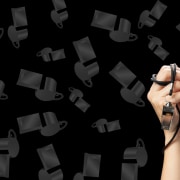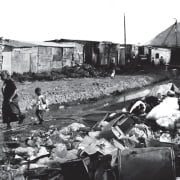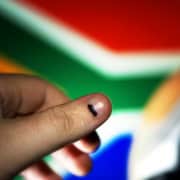|
Getting your Trinity Audio player ready...
|
Three South African multinationals have achieved the dubious distinction of being named as some of the worst-performing companies in the 2019 Corporate Human Rights Benchmark (CHRB), part of the World Benchmarking Alliance.
Since its first edition in 2016 the CHRB has assessed and ranked 100 of the largest listed companies from sectors at high risk for human rights violations (agricultural products, apparel and extractives). In 2019 another 100 companies were added from the information and communications technology manufacturing sector, bringing the total under scrutiny to 200.
The survey is based on the UN’s Guiding Principles for Business and Human Rights (UNGPs), with input from other industry and global standards on responsible business practices and human rights. Each company is assessed according to six themes, each of which contains a number of indicators. The themes are as follows, with this year’s average score in parentheses:
- Governance and Policy Commitments (2.6/10);
- Embedding Respect and Human Rights in Due Diligence (5.7/25);
- Remedy and Grievance Mechanisms (3.1/15);
- Performance: Company Human Rights Practices (4.3/20);
- Performance: Response to Serious Allegations (8.6/20); and
- Transparency (3.2/10).
The original 100 original companies are making good progress, says the CHRB – in 2017 the average score was 18% and a year later it has jumped to almost 32%. The 100 new companies managed a collective average score of just 17%. This, notes the CHRB, points to a potential weakness in public benchmarking, in that “it only matters to those being measured”.
In aggregate, says the CHRB, “the 200 companies are painting a distressing picture; most companies are scoring poorly and the UNGPs are clearly not being implemented.”
Fully one quarter of companies scored less than 10% – this sum rises to two thirds amongst the newcomers. No company scored more than 90%.
Epic fail of human rights due diligence
Furthermore, 95 of the 200 companies (49%) scored zero across every indicator in the theme of human rights due diligence – which means they are not following the process to identify, assess and act upon their human rights risks. “Human rights due diligence is a fundamental expectation of the UNGPs,” notes the CHRB.
The fact that half of the companies failed to meet any of the five basic criteria for human rights due diligence “should alarm governments and investors”.
The indicators in this theme are as follows:
| B.1.1 Responsibility and resources for day-to-day human rights functions |
| B.1.1 Responsibility and resources for day-to-day human rights functions |
| B.1.2 Incentives and performance management |
| B.1.3 Integration with enterprise risk management |
| B.1.4.a “Communication/dissemination of policy commitment(s) within Company’s own operations” |
| B.1.4.b Communication/dissemination of policy commitment(s) to business relationships |
| B.1.5 Training on Human Rights |
| B.1.6 Monitoring and corrective actions |
| B.1.7 Engaging business relationships |
| B.1.8 Approach to engagement with potentially affected stakeholders |
| B.2.1 Identifying: Processes and triggers for identifying human rights risks and impacts |
| B.2.2 “Assessing: Assessment of risks and impacts identified (salient risks and key industry risks)” |
| B.2.3 “Integrating and Acting: Integrating assessment findings internally and taking appropriate action” |
| B.2.4 “Tracking: Monitoring and evaluating the effectiveness of actions to respond to human rights risks and impacts” |
| B.2.5 Communicating: Accounting for how human rights impacts are addressed |
Weak South African representation
The three South African companies – Mr Price (15.1%), Sasol (25.5%) and Shoprite (a shocking 3.6%)– posted an average score of just 15%. Anglo American, South African in origin but now with its primary listing on the London Stock Exchange and a secondary listing in Johannesburg, managed an impressive 66.8%.
Mr Price is the only new South African company to the CHRB and therefore had no previous score to compare to. Shoprite, with a zero increase over the year before and Sasol, with a minuscule gain of 0.5%, were insipid performers.
Key findings:
Low scores for vast majority indicate failure to implement UNGPs – the average score of 24% reveals poor levels of implementation of the UNGPs by the vast majority of companies assessed, which is particularly concerning given that the CHRB focuses on the industries with the highest risks of negative human rights impacts (agricultural products, apparel, extractives and ICT manufacturing).
Human rights due diligence is a key weakness for most companies – the fact that so many companies fail to disclose information about this process should be of concern, particularly to governments considering the need for mandatory due diligence, and investors aiming to understand the risks in their portfolios.
Encouraging progress for companies assessed multiple times – average scores for ‘repeat’ companies increased from 18% in 2017 to 31% in 2019; approximately 6% yearly.
Not all companies are ‘in the race to the top’ – there are still plenty of laggards who consistently refuse to meet the basic requirements and who need further and greater pressure to act.
Out of sight, out of mind: new companies scoring 17% – this does show that scrutiny can drive change, but conversely, companies not under scrutiny do not appear to have felt the pressure to disclose or improve as their peers.
Companies fail to show remedy and compensation for victims of abuse – of almost 150 severe allegations reviewed in the 2019 assessment, in only 3% of cases do the companies show that they provided remedy that was satisfactory to the victims.
Transparency needs to improve, particularly for actual impacts and company practices – disclosure overall is weak and particularly in relation to the details of practices to manage key risks (such as forced labour) or enabling activities (like living wages or mapping the supply chain).
ICT manufacturing is lagging behind – ICT companies do appear to disclose on specific issues relatively well but fall down on more systematic approaches to respecting human rights.
In summary, says the CHRB, the majority of benchmarked companies are taking part in the race, but:
- One fifth of companies continue to score very poorly and do not seem motivated to move, which highlights the need for further engagement and enhanced scrutiny by other stakeholders
- Benchmarking shows some limits (for example for dealing with companies that are not engaging with the issues at all), even though the CHRB’s theory of change seems to be working for a number of companies.








